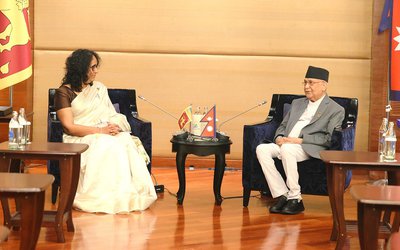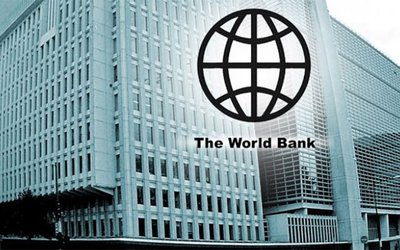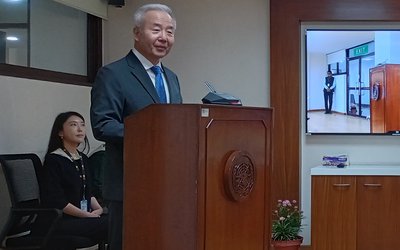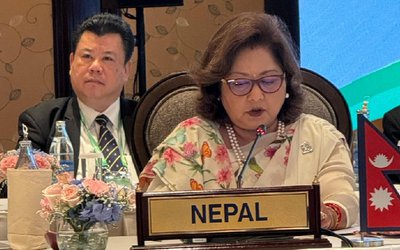
As the World Environment Day 2013 is being celebrated with the slogan of just to eat, what importance does the slogan hold for Nepal?
The slogan of the World Environment Day is Think. Eat. Save. That means eat for yourself to preserve the environment. There are two aspects of foods. The first is related to the food security part and the other is related to excessive consumption and waste of food. That means the excessive consumption and waste of food create the problem for food security. This will have negative impact on environment. Over eating and wasting foods will put burden on environment also. More energy is required as well as water to produce more food. Environment has to bear the burden of wasted food. The message suggests that one has to consider implication of waste food to the environment. Don’t waste food, keeping in mind that it will contribute to preservation of environment. In this context, the slogan of World Environment Day is important for us.
How are you celebrating the World Environment Day?
We are celebrating it at local level also. Eventually, the program needs to be implemented by grass root level organizations. Whether it is adaptation or mitigation, the effect of climate change needs to be taken at grass root level. Because of budgetary constraints, we are unable to hold it nationwide. However, Ministry of Forest and Soil Conservation as well as NGOs and INGOs are also supporting this.
Food loss and wastes are high in Nepal. Do you think celebrating the environment day on the banner increases food safety?
Food security is related to environment as well as related to Ministry of Agriculture and other ministries. This is a subject for the whole nation to think. In terms of harvest loss, we are losing huge amount of food. For this, we need to take steps for food security from the harvesting period. We need to look at the whole food chain. Under the Ministry of Agriculture, certain initiatives have been taken to control the loss of harvest. We also need to look at the issue from environmental aspect. There is the need to look at it on a coordinated approach. From food processing to utilization process, we need to concentrate to contain the loss.
What has your ministry been doing for this?
Since our ministry represents the environment sector, we don’t have programs to look at post harvest loss. Eventually, there is the need to have a coordination on this issue. Our ministry does not have broader implementing mechanism. Since agriculture ministry is there to address specific issues, the role of Ministry of Environment will be coordinative.
People complain that World Environment Day slogan has never materialized. How do you look at this?
This day is not only for slogan. The World Environment Day helps a lot to generate awareness about the environment at different levels. It also forces policymakers and common people to think what is national agenda and what the country needs to do to protect environment. If you look at the current slogan, there are three aspects:Think. Eat. Save. Our aim should be to create awareness at national level as well as district level. For this, we need programs.
Has your ministry specific programs to implement the slogan?
We are not going to launch any particular program. However, the agenda of food security is the priority sector of the government of Nepal. Our Ministry works to control the pollution and save the environment. It is related to us because production of excessive waste will damage environment. As I mentioned, excessive production will also damage the natural resources like water and soil. Waste food is also energy. Thus, we are also making efforts to generate the energy through the waste food. We can also generate the energy through the waste food for daily utility. For this, we need to work collaborating with local bodies like Municipalities. This will also contribute to preservation of environment. We have to think on this. Even now we are running the program on small scales. Alternative Energy Promotion Center (AEPC) is making effort to generate the energy though waste food. We have already initiated certain programs. We need to go for long term at bigger scales.
Experts predict that the climate change will have long term implication in the agriculture sector. How Ministry look at it?
Agriculture and food security have larger dimensions as the climate change. We cannot change the implications of climate change through mitigation. We need to take steps for mitigation as well as follow adaptation. We need to produce the seeds to adapt with climate change. The agriculture pattern needs to suit with new climate. Similarly, the mountain region also needs a special adaptation programs. We need to launch adaptation program as required by local areas. The Ministry is currently implementing Local Adaptation Plan for Action (LAPA). We are receiving support from Nepal’s development partners. I am proud to say that Nepal is the first Least Developed Country to implement it. It is in the initial phase of implementation in 69 VDCs of five development regions and one municipality. Under the World Bank support, we are implementing PPCR. There are also certain programs for climate change adaptation. These include water resources conservation in mountain region and some are directed to protect the wildlife. Even District Development Committees are launching programs at district level and village level.
Your Ministry has broader mandate. Do you have institutional capabilities?
After taking the job as a secretary of the ministry, I came to know that environment touches all the ministries. Whether you talk energy, water, agriculture, pollution, everything is part of environment. Even energy mix concept is widely experimented in the context of climate change. To minimize the impact of green house gas, globally, emphases are given to renewable energy. Despite extensive mandate, our institutional capability is weak. We have just recently established the Department of Environment. The Ministry does not have grass root level institution. We just have environment protection act and regulation. We don’t have adequate legal provisions to control air pollution in the urban areas. We are now working to set new air pollution standard. The present green sticker is just a symbolic step. We are unable to fully control the quality of air in the valley. Our enforcement is very weak. We are in the process of adopting new vehicle emission standards. It will complete within a couple of months. After making new Nepal Emission Standards, we will implement it in three areas, Kathmandu, Pokhara and Lumbini. There is the need to control the vehicles which have been running in the street for last forty years puffing heavy smoke.
- IME GROUP: Expands Into Paper Industry
- Mar 24, 2025
- CPN UML: Instigated By India
- Mar 23, 2025
- ADB’S CHIEF ECONOMIST: Nepal Reduces Poverty
- Mar 11, 2025
- FM DR. DEUBA: A Successful Visit
- Mar 11, 2025
- MD GHISING: Target Of Personal Grudge
- Mar 09, 2025















